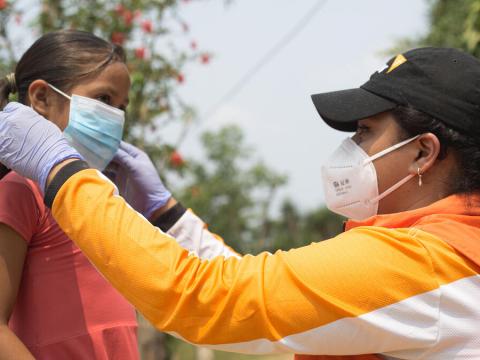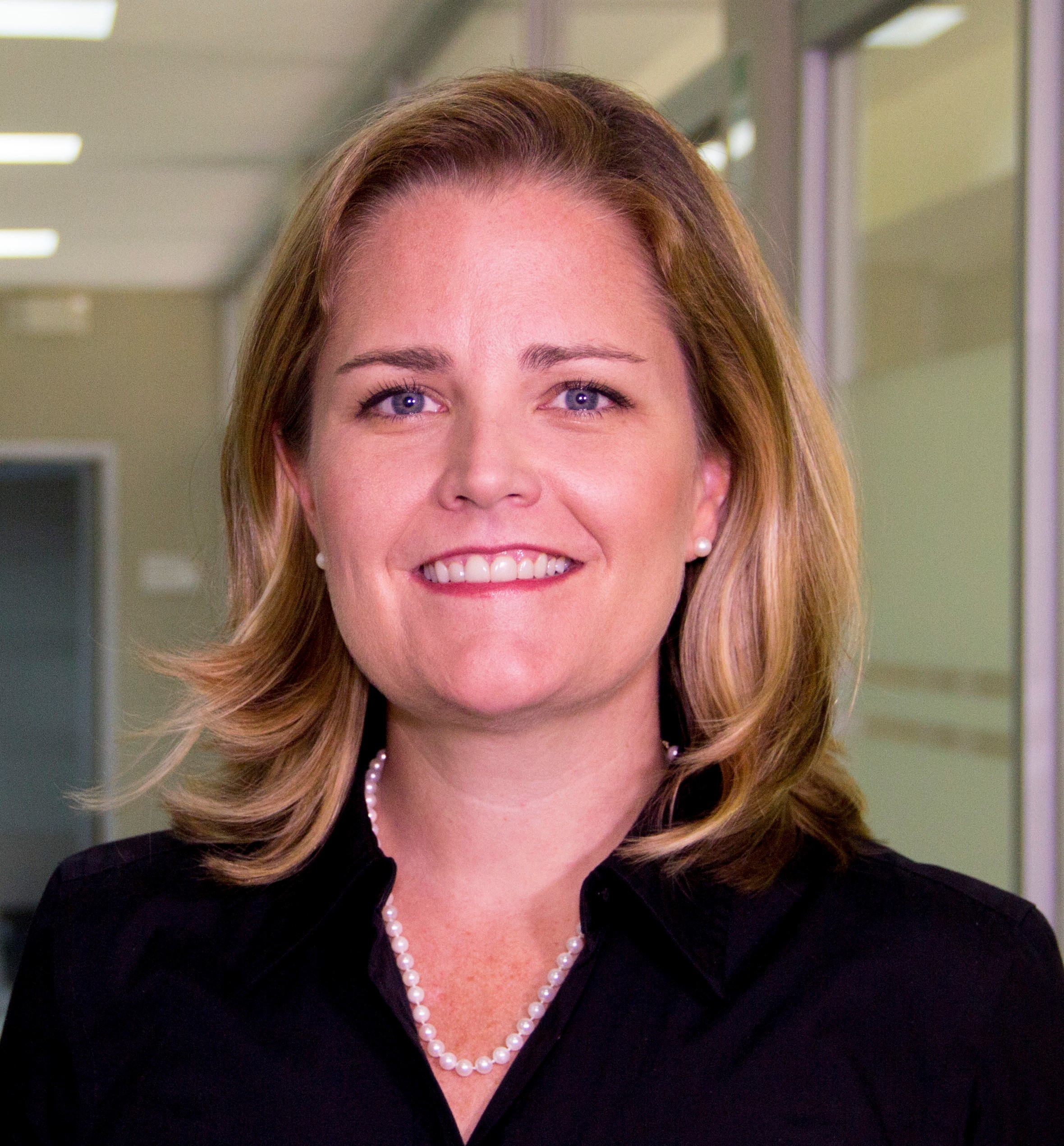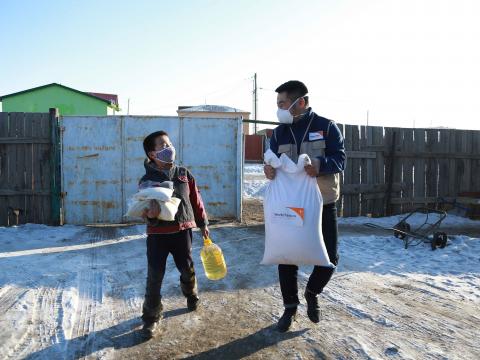
When COVID-19 hits home
By Amanda Rives Argeñal
This year is already littered with dates that are seared into my memory. March 11. June 13. July 5.
The first, March 11, was a big day at work. The World Health Organization confirmed the scary reality we were facing - a global pandemic moving at unprecedented speed. World Vision launched the broadest, most ambitious humanitarian response in our history. We broke into a sprint that day and haven’t stopped running since. Our teams in the field in 70 countries and in global capitals around the world have been moving at lightning speed, running on adrenaline to understand, respond, adapt, fundraise, influence, advocate and raise awareness of how the pandemic is hitting the most vulnerable girls and boys and their families and communities around the world.
Working around the clock and over every weekend, I was humbled watching our impact numbers tick up from tens of thousands, to hundreds, to over 45 million people reached today, over 19 million of them children. I also watched nervously as the worst case scenarios became a reality in many of the countries I have lived and worked – uncontrolled community transmission, rising infections and death rates, growing hunger, insecurity, and a devastating, if largely unseen impact on children.
On June 13, it became achingly personal. My family and I have been riding out the pandemic outside of New York in a crowded but happy home, not immune but not unaffected by the virus’ effects on our lives; juggling work and home schooling, safely accessing food and basic items. My husband is also working on the global COVID-19 response for another organisation, so while we were worried, we were also distractedly busy. Then my husband’s family got sick. His mother, father, sister, and baby niece in Honduras were likely infected.
My father-in-law was the sickest – the virus first affected his kidney function, later his lungs. Our family fought to provide care at home, bringing in doctors and nurses at a time when people really did not want to go into the hospital. Eventually it was inevitable; they could not get enough oxygen into him at home and my brother-in-law carried him out of the house and to the hospital where he initially did well. “He is stable and saturating well” they kept telling us, we became experts on oxygen saturation levels. It was the doctors and nurses who sounded worst off, at one point the doctor crying to us about how hard it had been, seeing colleagues die and patients suffer. My husband and I worked harder on our organisations’ respective global responses, confident he would pull through.
And then on July 5, our world changed. My mother-in-law called and, over the speaker, she said:

“He’s gone son, your father has left us, be brave.” Then she hung up. I doubled over, feeling like I’d actually been punched. It was certainly grief, complete sadness that he was forever gone, but also disbelief at the complete unfairness, that our loved one had been taken, pain at the thought of him dying alone, despair about how this would wreck my family for years to come with feelings of regret, sadness, guilt, and anger. This was an avoidable death! This is what we have been working so hard to prevent!
For the next three weeks, my heart dropped at every ping of the phone. My brother-in-law was now gravely ill and fighting for his life. Another 10 members of the immediate family became infected. It seems selfish to talk about how my husband and I felt, but it was like a nightmare where you are paralysed. Every day we would check in multiple times, and heard the challenges mount as the context deteriorated. Desperate searches to find the reactive ingredients for blood tests, medicine and treatments, increasingly scarce tanks of oxygen to care for each other at home as the hospitals were collapsing, teenagers taking care of their parents then getting sick themselves.
In a time where there is nothing to do but pray and worry, my husband and I spent the time researching how you manufacture oxygen, wondering if the drugs were the best they could get, and arguing over how governments, NGOs and the UN system should be responding. And of course we endlessly read the news on rising cases of COVID-19 around the world, but with a fresh sense of despair, even doom, and good dose of anger.
We have now had dozens of family members and friends in Central America infected; most are recovering and some will have lasting effects on their health. But I cannot say my family has even begun to heal. Eight children including my own lost their grandfather, my husband and his siblings lost their father, and Honduras lost a great man, a humble but dedicated teacher who went on to become Vice Minister of Education amongst other leadership roles. Don Amado lost the opportunity for another visit to his farm, an afternoon on the hammock, a dip in the ocean with his grandkids, or the perfect plato tipico.
It only exacerbates our pain to see how far we are from this pandemic being over; we are seeing close to 300,000 new infections every day, over one billion children out of school and experiencing greater violence and exploitation, millions of people out of work and going hungry, global efforts to leave no one behind looking further and further out of reach. Families all over the world losing their loved ones too early, as we have, in tragic circumstances. Global leadership is lacking, misinformation is rampant, and people just want to get on with their lives.
These are dark, scary times for those of us working on COVID-19. In Latin America we are seeing how countries with social safety nets and national health care are on the brink of collapse. We are at a global tipping point. The virus is just getting a foothold in the most vulnerable places. Fragile and conflict-affected nations in Africa and the Middle East will be deeply impacted; Syria, Afghanistan, South Sudan and many other countries already struggle with barely functioning services and the weakest health systems.
As the global humanitarian and development community, as civil society, as people of faith, we must continue, pushing harder than ever, to work together in the fight against COVID-19. We must strive to keep focus, to carry on, to find the energy and hope necessary even when so many of us are dealing with personal trauma. It is not easy work but we will not shy away. There are going to be more dates etched in our minds. One of those dates will be the end of this pandemic and then we will begin to heal, knowing we did our very best to respond.
Amanda is World Vision's Senior Director of External Engagement and Resource Development in the Disaster Management. Follow Amanda on Twitter @AmandaRivesA


